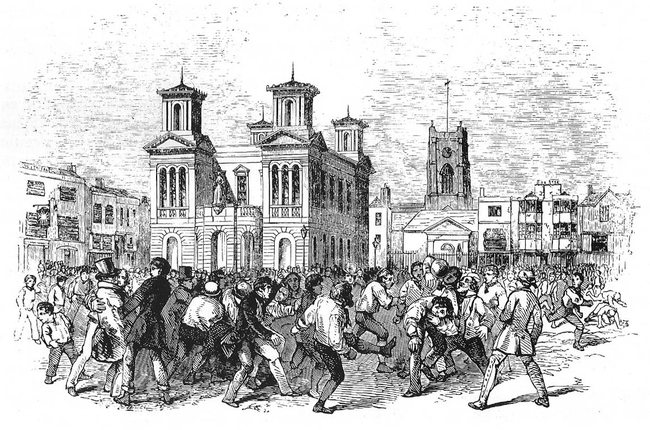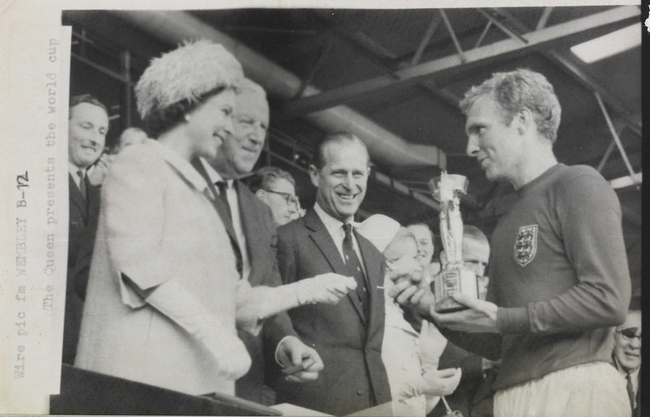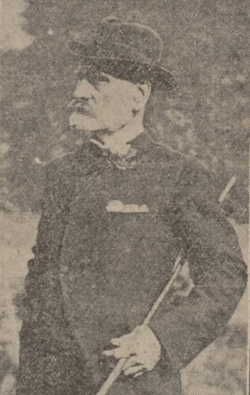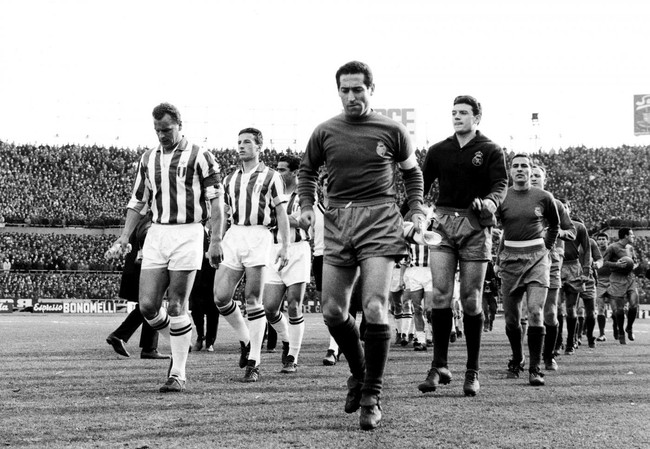For top football tips, betting offers and free bets from the best football betting sites in the business, this website is just the ticket.
We only recommend bookies that we trust and use ourselves, all of whom offer excellent free bets and/or football betting offers and promotions.
Quick Start Guide:
- Check out the latest Free Bets and Betting Offers from the best bookies in the business and stack the odds in your favour.
- Need a hand? Check out the latest Betting Strategy for the Premier League and more.
- New to football betting? Visit our Football Betting Guide for all you need to know.
Betting Sign Up Offers

Up to £40 Bonus If Your First Bet Loses
For more offers head on over to our main free bets page. Please note that terms and conditions will apply to any sign up offer you claim and remember to always bet responsibly.
Football Betting Sites

Why such a strong focus on football? As the most popular and most bet on sport in the UK it shouldn’t be too difficult to understand why we weight our advice towards the beautiful game. After all, you have to give the people what they want!
We’ve also found that football and racing punters tend to be a bit of a different kettle of fish in terms of what they’re looking for, so for this reason we cover racing on a separate horse racing site. For other sports, such as tennis and golf, visit our friends at top 10 betting sites who have a more holistic approach to their betting reviews.
Finding a site for betting on football isn’t hard as almost all online bookies cover it* but that doesn’t mean that all sites are equal. Some have better odds whilst others offer more promotions. And if you’re into your more obscure foreign leagues you’ll find that the coverage will start to vary significantly once you venture away from the English leagues and higher profile cups.
We know that for a lot of people it’s all about the free bets, so if that’s the case you can find a list of the best sign up offers in the section above with a full list here. You can also read a quick summary of the main sites we recommend on our bookmakers page, and if you’re after more info on who’s behind a site you can find this in the links below:
- 888Sport
- Betfair
- Betfred
- BetVictor
- Betway
- Boylesports
- Coral
- Ladbrokes
- Paddy Power
- Totesport
- Unibet
- William Hill
* There are a few racing only sites that pop up from time to time, but we don’t cover those on this site – for obvious reasons.
How to Bet on Football
 Betting on the football can provide more drama than Joey Barton’s career. Making the most mundane mid-table clashes enthralling, a bet can mitigate those mid-week blues or turn a good weekend into a great weekend. Gone are the days of only being to gamble in high street betting shops. Online football betting is becoming increasingly prominent, along with numerous mobile sites and applications for those who fancy a wager on the move.
Betting on the football can provide more drama than Joey Barton’s career. Making the most mundane mid-table clashes enthralling, a bet can mitigate those mid-week blues or turn a good weekend into a great weekend. Gone are the days of only being to gamble in high street betting shops. Online football betting is becoming increasingly prominent, along with numerous mobile sites and applications for those who fancy a wager on the move.
Due to the myriad ways to bet with various bookmakers, the world of football betting can seem confusing, limiting access to its euphoric highs and unfulfilling lows. However, this minor hurdle can be easily conquered, making the options available to punters exciting and constantly fresh and we’ve got everything you need to know about online football betting right here.
How to Join an Online Betting Site
To join a betting site simply click on any of the links on our site to whichever bookie or free bet you fancy. On most sites the option to sign up is situated in the top right or left hand corner of the page. Normally, this will be highlighted with a phrase such as “Register” or “Sign up”. In order to complete the registration process, a number of basic details must be provided to the bookmaker.
To gamble in the UK customers must be at least 18 years old, therefore your date of birth will be required. Moreover, the bookmaker requires an address; this is to help prove who payments are coming from when depositing and going to when withdrawing. Requests for an email address must also be satisfied in order for the site to both contact customers and provide assistance if a username or password is ever forgotten. ID may well be requested at this point as, by law, bookies have to verify you are who you say you are. Next, a username and password must be created, something memorable. A security question is often also required in order to provide a safeguard if these details are forgotten. Terms and conditions must then be agreed to, along with the input of any promotional code in order to take advantage of a free bet or bonus.
It is worth investigating bookmakers’ introductory offers before signing up to any given site. An example of these may be a free matched bet, where your first stake is matched in the form of a free bet: for example, a £10 stake on England to win would allow for another £10 bet to be placed for free.
After this stage customers will most likely be invited to enter card details and set a deposit limit. This will limit how much money users can deposit every 24 hours. This limit can be as low as £5 or as high as £500, although a limit is not mandatory. Whilst putting in card details you may be invited to deposit funds but this can also be done at a later time via the deposit link, often situated in the top right or left corner of the homepage. Once this process is complete, you should be free to get started and bet on the beautiful game.
How to Place a Bet
 Once registered on a site the joys of betting on football are at a user’s fingertips. To place a bet the user must simply click on their chosen bet (for example, Liverpool to win) and this will subsequently be added to their virtual “betting slip”. This usually appears as a box on the side of the page permitting you to add further bets to your slip. The betting slip can also be accessed via a link at the top of most sites.
Once registered on a site the joys of betting on football are at a user’s fingertips. To place a bet the user must simply click on their chosen bet (for example, Liverpool to win) and this will subsequently be added to their virtual “betting slip”. This usually appears as a box on the side of the page permitting you to add further bets to your slip. The betting slip can also be accessed via a link at the top of most sites.
Customers must then state how much they would like to stake on that particular bet; the returns on that stake will then be indicated immediately next to it. If happy with such a return, the customer can click on the “place bet” tab on the betting slip and the bet should be placed successfully as long as the odds have not changed and the customer has enough available funds. If the betting odds have changed, the slip should update and the customer will have the choice to place the bet at the new odds. This is the most common process, although it may vary between online bookies and there may be an additional confirmation screen/button before the bet is placed. Always check your bet is confirmed.
There are many types of footballing bet on offer at the brilliant online and mobile bookies we work with. The main bets are summarised below:
- Match Odds – This is where either team is backed to win or alternatively the draw is chosen. This is the most common form of football betting and probably the best form to get started with. Also known as 1/x/2 betting or 90 minute betting.
- Tournament/Outright Winner – Betting on which team will win a given tournament or event.
- First/Last/Anytime Goalscorer – This allows customers to bet on whom they think will score first, last, or at any time in a match.
- Correct Score – Bet placed on the specific full time or half time score in a match (e.g. 2-1) and always limited to 90 minutes plus stoppage time unless specified. Extra time not included.
- Under/Over Goals – Whether more or less than a given number of goals will be scored in a match (e.g. Under 2.5).
- Both Teams to Score – This requires the customer to answer the question ‘will both teams score?’ and is sometimes called BTTS for short. A ‘yes’ or ‘no’ answer is then bet upon and increasingly this can be combined with the match result; for example, you may bet on both teams to score and Everton to win as one single bet.
- Accumulator/Multiples – Numerous bets that have combined odds if all individual bets are successful. This is usually done on multiple match results yet other forms can be used such as both teams to score. This can provide large odds and huge wins for a small stake.
- Handicaps – Bet on one team to win with a goal disadvantage or advantage from the start of play. Handicaps can also include half goals, thus eliminating the draw.
- Cards and Corners – The number of cards shown in a match or the number of corners can be wagered upon.
After placing bets and enjoying the game the only thing left to do is sit back and revel in the excitement. Should you be lucky/skillful enough to win you will, of course, have to withdraw winnings. This can be done via the “My Account” link at the top of the page on most sites, with winnings being added to the card/account used to deposit funds. Equally, winnings can be kept in the account for future bets or partially withdrawn by specifying an amount.
A Brief History of the Beautiful Game
Playing football with a human head is not deemed socially acceptable in modern times thankfully, but that wasn’t always the case. Luckily, football has developed over the years, making the modern game truly great and accessible to millions without the need for someone to be decapitated – bonus. Football has evolved and provided a myriad of fantastic moments throughout the years. Yet whom can we thank for delivering such an all-consuming sport to the masses? How have we gone from such a violent game to a highly protected and more skillful modern day version? Most importantly, who had the novel idea of playing with a ball rather than a human head?
Ancient Football
There is evidence that games similar to football were played throughout the world as early as 5000B.C. Evidence has been discovered indicating that military forces in the Han Dynasty played a similar game to football, “Tsu Chu”, which involved a small leather ball stuffed with fur with only the use of feet being permitted. A similar game can be seen in Japan, named “Kemari”. This consisted of a larger ball than “Tsu Chu”, yet an international between the Japanese and Chinese reportedly occurred around 50BC. This may have been the first ever instance of international football.
Alternative games spread throughout the world. Italy had “Calcio”, allowing up to 24 players on each team, with the goal of getting the ball over the opposition’s line via any means. In North America and Canada “Aquasaktuk” was popular, whilst in South America a comparable sport was in practice with the pitch in the shape of an “I”.
The origins of English football can be traced to the year 700, with peasants in the east of England decapitating a Danish prince and then kicking his severed head around. Laws were passed in 1331 by Edward III, banning such events – the spoilsport. Queen Elizabeth I passed further legislation punishing “footballers” by way of prison with a maximum sentence of a week. This law was revoked though, so we won’t be seeing Raheem Sterling in Strangeways any time soon.
The Creation of Modern Football
The Footballing Association (FA), the body that oversees and governs football in England, was created in 1863. Football as we know it can be seen to stem from this point. Ebenezer Morley has been dubbed “the father” of football after creating Barnes FC in 1862. From this time there was a good deal of debate surrounding the rules of the game. Consequently, Morely wrote to Bell’s Life newspaper, suggesting that a set of rules should be created for football. A meeting was held in Holborn (London) with representatives from numerous clubs who all played with contrasting rules to establish a single universal rule book. This was deemed to be the creation and the first meeting of the FA. Football at this point was believed to involve both the use of hands and feet similar to Australian Rules Football.
The role of the FA had little effect up until 1871 when “The Football Association Challenge Cup” was created. Helping unify and bring a common competition to a wider group of clubs helped reinforce the new rules drafted by the FA. However, this was limited by only 15 of the FA’s 50 member clubs joining the competition in its first year. In order to spread the positive effects of a unified competition, County and District associations were created in order to create greater organisation within local areas. Resultantly, greater gains were seen on a national level, making the FA a truly legitimate national body.
Such interest in the FA Cup spiraled upwards with demand, especially in the north of England where many saw nothing wrong in paying players to perform. Thus, Professionalism was formally endorsed by the FA in 1885. In order to maintain professionalism, teams had to play on a more regular basis and with greater organisation. William McGregor (a member of the Aston Villa Committee at the time) wrote to numerous clubs to organise a league format in order to enable this, with the league involving 12 clubs being set up in 1888. This has developed over the years and is ultimately the origin of the Premier League today.
European Football
With the increasing development of the beautiful game in England, popularity was also flourishing throughout the rest of the world. The FA was originally against any European footballing federation and dismissed claims from the Netherlands FA in 1902 and later calls from the French in 1903 for the need of such an organisation. Consequently, England were not one of the founding members of Fédération Internationale de Football Association (FIFA), created in Paris in 1904. However, by 1906 the FA had caved in and were a fully-fledged member, a move we can be thankful for today with FIFA in charge of tournaments such as the World Cup.
European club competition was first seen in 1954 with the original European Cup, now the Champions League. By 1954 the European footballing associations were represented by UEFA (Union of European Football Associations). When French journalists covered the South American Cup of Champions, enthusiasm emerged for a European alternative. Gabriel Hanot, editor of French newspaper “L’Equipe” began forming proposals of such a tournament for UEFA. Efforts were bolstered by Wolverhampton Wanderers winning numerous international friendlies and thus being deemed “Champions of the World” by the English media. Hanot stated that Wolverhampton Wanderers must prove themselves against Europe’s elite before claiming such a title. UEFA approved Hanot’s application with Real Madrid going on to dominate the European Cup in the following five seasons. Real Madrid remain the most successful European team as of 2019 with 13 trophies in the cabinet.

Credit: Jeremy AA Knight Flickr
An international equivalent to the European Cup was set up by UEFA in 1960, then known as The European Nations Cup and now the European Championships. Held in France and won in Paris by the Soviet Union, the 1960 Championship included 17 teams yet many key nations such as Germany, England and Italy were missing. The last European Championship was held in Poland and Ukraine with 16 teams at the finals after 51 entered the qualifying process and the eventual winners, for the second time running, were Spain.
World Football

Credit: National Science and Media Museum via Flickr
The first World Cup took place in Uruguay in 1930, yet England did not field a team. This was due to the FA temporarily withdrawing from FIFA over a dispute involving the payment of amateur players. England would wait 20 years to play their first world cup match in Brazil 1950, only to be knocked out in the group stages.
England first hosted the World Cup in 1966, taking the FA six years to organise the tournament. Such preparation was rewarded though with England famously lifting the Jules Rimet trophy. The home World Cup also saw accessibility to the game multiply dramatically with the 1966 tournament being the first ever to receive extensive television coverage. It has been estimated that seven out of ten people watched at least one match on television.
England have not won the World Cup since, their next best attempt coming in Italia ’90 when they were beaten on penalties (of course) by Germany (of course) in the semi-finals. They suffered the same heartache at the same stage in the competition in 2018, but this time it was Croatia who knocked them out. As of 2019, Brazil hold the most World Cup victories with five, closely followed by Germany and Italy with four apiece.
Modern Football
Modern Football has developed a great deal financially yet also tactically in comparison to the football discussed when the FA first began. The Premier League began in 1992, taking over from the traditional First Division, and since the introduction of mass television coverage and sponsorship the wealth and popularity of football has skyrocketed. Added to an influx of richer foreign owners helping change the face of football, with the highest paid players in the world netting hundreds of thousands of pounds per week, the modern game is very different from the days when players were forced to get a job when they retired.
Tactically, formations have also become more advanced with the traditional 4-4-2 formation used throughout the last century giving way to more subtle variations. Recent success seen under the 4-2-3-1 formation of Jose Mourinho’s Chelsea and Spain’s 4-5-1 has encouraged others to try these more midfield-heavy options.
Equally, a recently debatable topic of the development of the modern game can be seen in the use of technology. The FA and FIFA have been very reluctant to introduce technology believing that the professional game should be played in a similar fashion to that of the amateur Sunday Leagues around the country. Nevertheless, the 2014 World Cup saw the introduction of goalline technology, marking a move away from the roots of 1863. More advanced video technology similar to that seen in rugby was introduced by some leagues in 2018, with the Premier League using VAR for the first time in the 2019/20 season.




